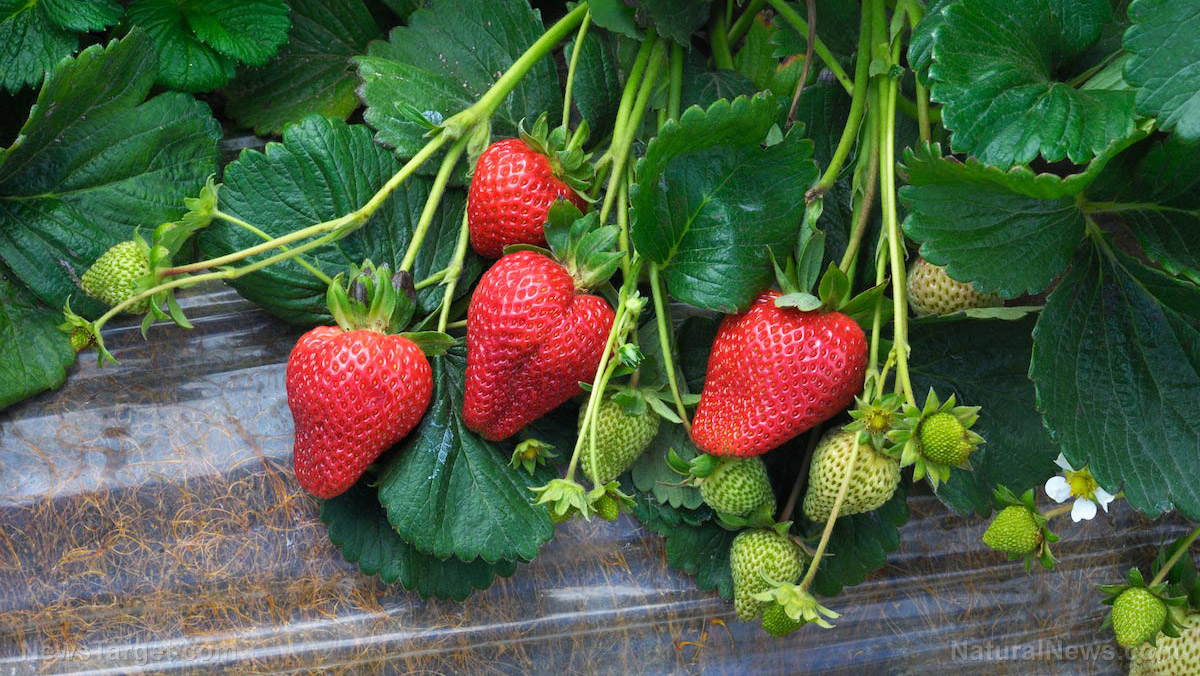
Living in the city doesn't mean you can't start your own garden. If you're living in an apartment, you can cultivate fruits, herbs, and vegetables that can thrive in pots right in your balcony or patio. (h/t to ThePrepperJournal.com)
Before you start planting, confirm that your apartment building or condo allows residents to start gardening.
By growing your own produce, you can have access to fresh, organic fruits and vegetables that are free of any harmful chemicals. Follow the tips below to start your urban garden.
Check the direction your balcony or patio is facing.
If your balcony or patio is facing south, you will have limited shade. To address this, you can install an awning to shade your plants in the afternoon. If you don't want to set up an awning, plant sun-loving vegetables in your garden. (Related: How to start an indoor garden in your apartment.)
Balconies and patios that face north will get more wind and moisture.
Sketch your plan for your garden.
Draw up a plan for your garden, then decide where you'll place certain plants based on the space they need and whether they grow out or up. Leave enough room so you can tend the plants.
Finalize your budget and get basic gardening tools.
You don't need to splurge to set up a garden in your balcony or patio. You can start with the following basic items:
- 8- or 10-inch clay pots
- Gardening gloves
- A high-quality trowel
- Organic fertilizers
- Plant markers
- Planting soil
- Pruning shears
- A variety of seeds
- A watering can
Not all vegetables need to planted in a large plot of land. The vegetables in the list below will grow well in your patio, and they're easy to grow and preserve.
If you're not sure what kind of vegetables can grow in your area, check with other local gardeners or do your research online.
- Carrots – Grow carrots in a deep pot and keep the soil moist so the roots don't dry out. A low-maintenance vegetable, carrots can be used in lots of recipes.
- Eggplant – Eggplants are easy to grow and you can use them as a meat substitute in vegan recipes.
- Mustard greens – Mustard greens will thrive in bright sunny spots, but they can also withstand cooler temperatures. The greens can be sprinkled on salads or added to filling in vegetable-based dishes.
- Peppers and chilies – Add some spice to meals by planting peppers and chilies in your garden.
- Pole beans – Pole beans grow up instead of out. Make sure you have a strong trellis for the vines to climb on. A great source of protein, pole beans are naturally low in cholesterol and sodium.
- Radishes – Like carrots, radishes require little work. However, you should keep them watered so the roots stay healthy. Add radishes to salads and soups.
- Spinach – A very low-maintenance plant, spinach is full of iron and vitamins.
- Squash – Squash can be used as a meat replacement in various recipes. Squash is full of vitamins A and D.
- Tomatoes – Tomatoes produce small, medium, and large fruits. Get seeds that produce the right size so you don't crowd your other plants. Since tomatoes grow a lot, you'll only need one or two large pots for them.
Below are some nutritious fruits that you can also grow in a balcony or patio garden.
- Blueberries – Blueberries are easy to grow. Eat berries raw, or add them to oatmeal, grits, pancakes, or a salad.
- Dwarf apples – Plant dwarf apple trees in large pots. The trees are easy to care for, and they will produce a lot of juicy apples.
- Strawberries – Strawberries produce a good harvest. However, they don't re-grow so you need to re-plant when your strawberries are finished producing. Keep strawberries in hanging pots so you have room for other plants in your garden.
With a bit of planning, you can start a garden right in your balcony or patio. Be creative and make the most out of the space in your home so you can always have clean, organic fruits and vegetables.
Sources include:
Please contact us for more information.














